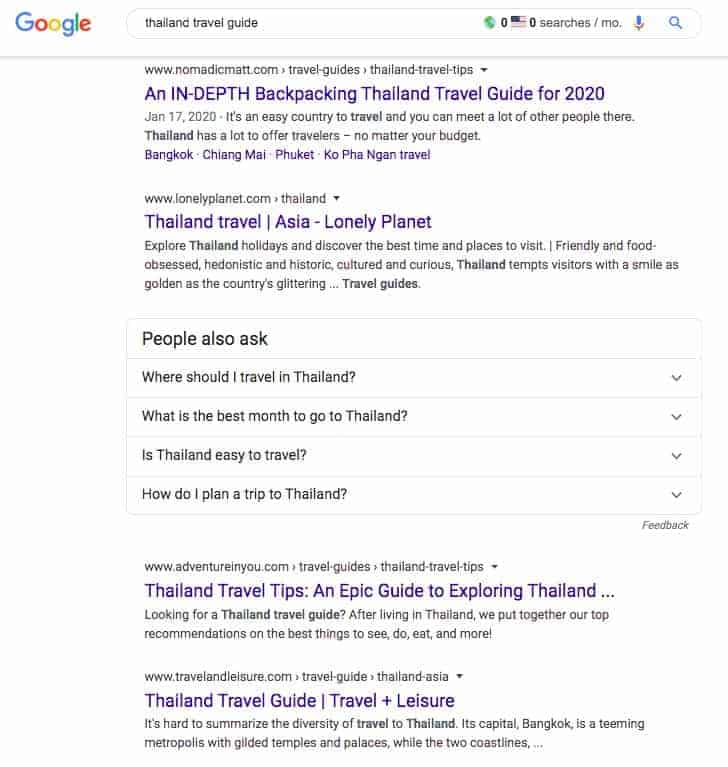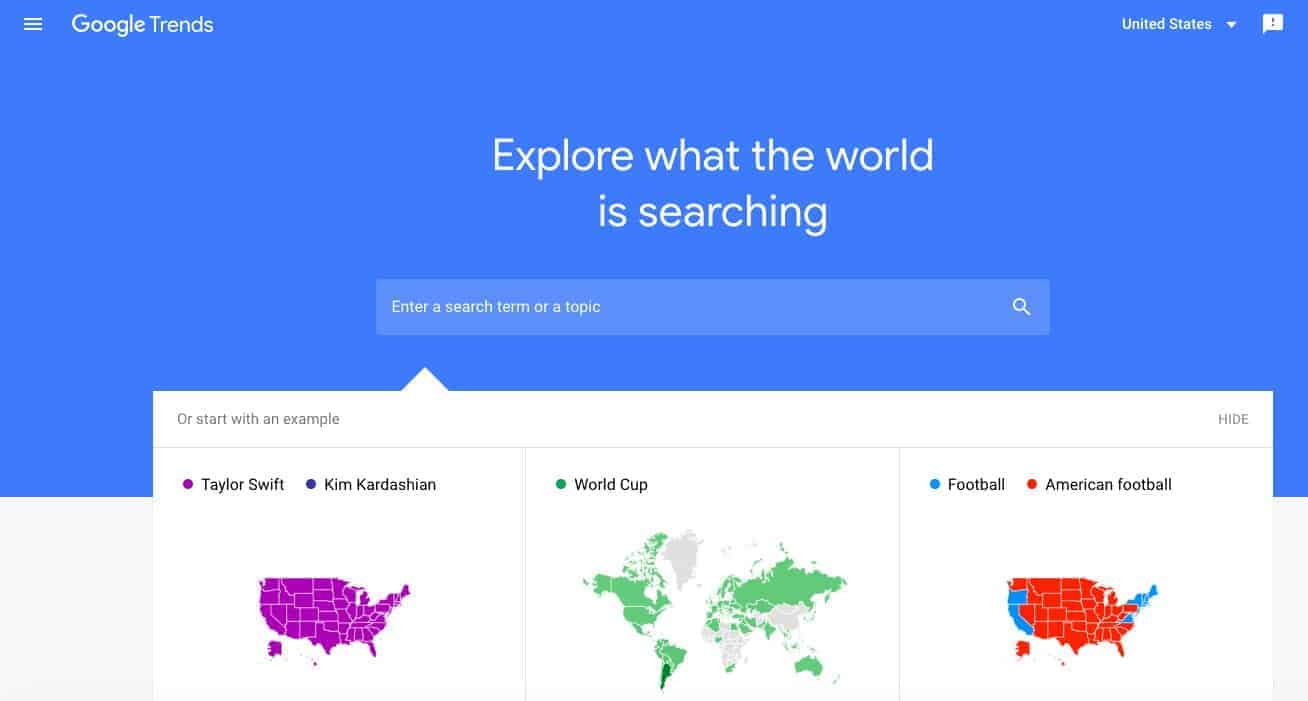2020 presents many new and exciting opportunities to master your content and reach a wider audience.
While the BERT algorithm update gave a not-so-subtle nod to the importance of search intent, SEO content writers everywhere were not surprised to hear that the search engine is prioritizing audience-focused content.
The issue, then, has been the over-emphasis on keyword-rich content, which has mainly resulted in poor user experience and, ultimately, lower conversions.
Therefore, 2020 is all about putting the user first by creating value-rich content. Add in AI and engaging visuals, and you have the perfect cocktail for SEO-friendly, click-worthy content.
Here are my 10 tips for helping you create your best SEO content in 2020 and beyond.
1. Identify Your Ideal Client Avatar
The concept of defining your ideal client avatar (ICA) is nothing new, but it’s something that is oft overlooked when it comes to content creation.
In order to create content that speaks to your target audience, you have to thoroughly understand who they are, what they want, and what they are searching for online. This will not only inform your keyword research but also how to create content that compels them to take action.
The goal here is to focus on the “favorable characteristics of your best customer” and create a persona that becomes your ICA. With this in mind, you can then answer these questions to create highly-targeted content:
- What are the top 3 struggles my audience is facing right now?
- What actions have they taken to overcome these struggles?
- Why didn’t those solutions work for them?
- What is their number one goal when it comes to [ SEO, content, marketing, etc. ]?
- What are they looking for in working with a business like mine?
To get even more precise, you can use these questions in an audience-facing survey (I like to use Google Forms) and use their answers to inform the keywords you target, your calls-to-action, and the language you use in your content.
2. Map Keywords to Search Intent
Keyword mapping is an important step that involves assigning target keywords to certain pages and posts. And while most SEO professionals factor this into their process, it’s not uncommon for the search intent factor to be left on the backburner.
In 2020, we want search intent to be front and center. This is the best way to create content that highly relevant to the mapped keywords.

For example, let’s assume that you want to rank for “Thailand travel guide”. Keyword mapping based on search intent would mean deciding whether it’s a better fit to assign this keyword to a “Complete Guide to Travel in Thailand” blog post, or a webpage describing your travel guide services.
Do a Google search for your keyword and you will see what kinds of results come up. If the searcher’s intent is to learn more about travel in Thailand – not hire a travel guide – then you’ll want to go the blog post route.
The important thing to remember here is that you shouldn’t shoehorn a keyword into your content just because you want to rank for it.
Consider what the searcher is trying to find or accomplish in searching that keyword, and then create content that’s tailored to that.
3. Become a Topic Expert
Fluffy content might have had its place in 2019 (hardly), but 2020 is all about E-A-T and creating that value-packed content.
Now, “value” is one of those words that is hard to define and perhaps overused in the marketing space. But, really, value just means providing the solution your target audience is looking for. It’s relative – and it takes a topic expert to get it right.
For instance, you could pay a lawyer to write a blog post about “What is SEO?”, but they are likely to miss some important points, nuances, and “isms” that make the content click with an audience that is looking to learn SEO.
Further, having some credentials behind your name is likely to give your content even more validity and help you build trust with your audience.
Therefore, the best way to create your very best content is to write what you know – or hire a pro who can write well-research content for you.
4. Increase Brand Authority Through Guest Posting

Most SEO professionals know that guest posting can be a great way to attract high-quality backlinks. But are you using guest posting to build your brand authority as well?
If not, you could be missing out on some lucrative opportunities.
Even if you don’t get a followed link back to your site, writing for the right publications can help you stand out in your niche and thus attract new clients.
Look for sites and blogs whose readership aligns with your target audience, and whose social following could generate some traffic for your brand. Don’t miss out just because you don’t see backlink potential.
Further, you can hire a ghostwriter to write expert-level content that puts your brand on the map and establishes you as an authority in your space. This can generate massive returns, even beyond what you would get from a few backlinks.
5. Take a Multi-Channel Approach
If my experiences have taught me anything, it’s that being omnipresent is a great way to reach a wider audience and generate buzz for your brand.
I mean, that guy is everywhere – Facebook, Instagram, LinkedIn, and even TikTok.
Now, there are only so many hours in a day and not everyone can afford a team that circulates content around the clock.
But there are some tips we can pick up from Gary Vee’s content marketing strategy:
Reduce
Vayner Media does a great job of breaking dense content out into bite-size chunks to be marketed across multiple channels.
These bits of content are easy to digest, are highly click-worthy, and do a great job at getting more eyes on your brand.
Re-Purpose
Effective content marketing doesn’t mean having to create fresh content every single day (or, even, every week).
Instead, you can use the same outline for a single piece of content to create content for different platforms.
For example, your latest blog post could easily become a script for your next YouTube video, which you share across social media and send out to your email list.
Or, your step-by-step guide could become a five-day email course you use to move subscribers down your sales funnel.
Re-Cycle
Breathe life into your old content by giving it a revamp and sharing it with a new audience.
Perhaps you have an old blog article that was popular when it first went live, but it got buried deep in your blog.
Upcycle it with new information and share it on social media to drive new traffic to your site.
6. Invest in High-Quality Visuals
I know most of you are tired of skimming through dull, image-less content and so am I.
2020 is the year to step up your image game by adding custom graphics, photos, and videos to your content.
The main reason why I encourage people to do this is not because of engagement, but because of the possible consequences for sourcing images from the web.
If you rely on cheap stock photos for your site, your readers may be irked knowing they see those same images elsewhere, and if you accidentally source copyrighted images, you may be in for a big fine.
Instead, I urge you to fork over the extra cost for custom images or photos.
You can source affordable graphic design from sites like Upwork or Fiverr, or find designers on LinkedIn or Facebook. For instance, I pay about $80 per post to source custom images for my articles.
Finally, the benefits of using SEO-friendly images are well documented.
Give your content a competitive edge by incorporating your own on-brand images, videos, and graphics.
7. Utilize Content Optimization Tools
You don’t have to be a professional writer to create search engine optimized content, and you don’t have to be an SEO expert to write engaging articles.
You can fill in the gaps with content tools that help you write better and optimize your content the right way.
For SEO professionals, I highly recommend tools like Grammarly, Hemingway Editor, and CoSchedule’s Headline Analyzer to ensure that your content is user-friendly, engaging, and click-worthy.
For writers, I suggest Surfer SEO, Text Tools, and/or PageOptimizer Pro to make sure your content is keyword-rich and optimized.
Use these content tools to your advantage when it comes to writing audience-friendly content that actually ranks.
8. Be Receptive to Audience Input & Feedback
Most SEO pros will herald the benefits of “value-based content” or “audience-focused” content, but what does this actually mean.
The fact is, what’s considered “valuable” is difficult to qualify.
That’s why an essential part of my content writing process is collecting input from my target audience through audience surveys.
I use these to ask my audience what blog post topics they’re interested in, what products they like, what trends they are following, and more.
But my process doesn’t stop there. I also use Google Forms and social media surveys to ask my audience how they like my published content and what suggestions they might have for the future.
Through this, I am able to get a read for what they consider valuable and whether I have actually hit the mark.
This is a humbling approach that ensures that you are providing content that’s relevant to your readers, not just content you think they want to read.
9. Ride the Rave of Trending Topics
We all know how frustrating it can be to try and rank for a competitive keyword, just to be squeezed out of the SERPs by high-authority sites.
Is it possible to outrank big-name sites?
Yes – if you learn to “ride the wave.”

Staying on top of the latest trends and creating content that targets those high-traffic keywords can be a great way to outrank even the biggest sites.
Since the nature of a trend is that it tends to be short-lived, you may not generate long-term traffic through this approach, but you can see a surge in traffic overnight.
Consider that “Taylor Swift” was trending (according to Google Trends) right around the time that her new documentary dropped.
Say, if you were an entertainment blogger, you could have hopped on this trend by reviewing her latest doc, even ahead of major publications.
The key is to put a twist on a trend to make it relevant to your niche and audience. For example, some ideas might include:
- Reviewing a new NFL player’s contract to discuss the importance of contract law (lawyers).
- Writing an article on “how to break the internet” with your marketing, following Kim Kardashian’s Paper cover (writers).
- Publishing “What Super Bowl LIV Commercials Can Teach Us About Marketing” (marketers).
- Releasing a travel guide that covers “coronavirus advisory information” that helps people stay safe while traveling abroad (travel bloggers).
Obviously, I would not recommend getting too political or controversial – unless that fits with your brand – or else you risk angering or alienating your audience.
Keep it light, keep it helpful, and make sure it aligns with the rest of your content on your site.
10. Build & Engage Your Email List
There are many ways that email marketing can amplify your SEO results – my favorite of which is its ability to supplement evergreen post traffic on autopilot.
By growing and engaging your email list, you can direct users to new content on your site through email automation tools.
Convert Kit and Mailchimp are just two examples of email marketing tools that can help you grow your email list and generate more traffic and leads.
A huge perk of investing in email marketing is that you own your list; if anything were to happen to your site or social media channels, you can always remarket to your subscribers.
Use content upgrades like free checklists and other downloadable to convert readers into subscribers. Then, get set up with an email automation platform and hire an email copywriter to write high-converting email campaigns.

Further, segmentation will allow you to nurture sets of subscribers until they are primed to buy the offer that’s most relevant to them.
Create Your Best SEO Content Ever This Year
I’m excited to see what new content trends pop up in 2020. In the meantime, we all can take action on what we know and apply these data-driven strategies to our content.
Use these tips and tricks to create high-value, high-converting content that gets your website noticed online.



Really helpful blog post Andy. Thanks!